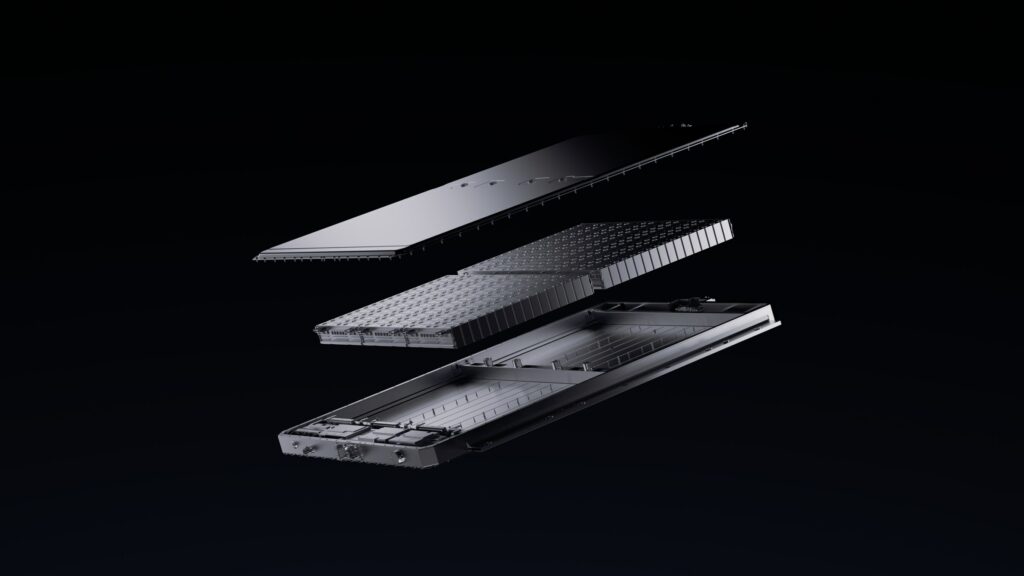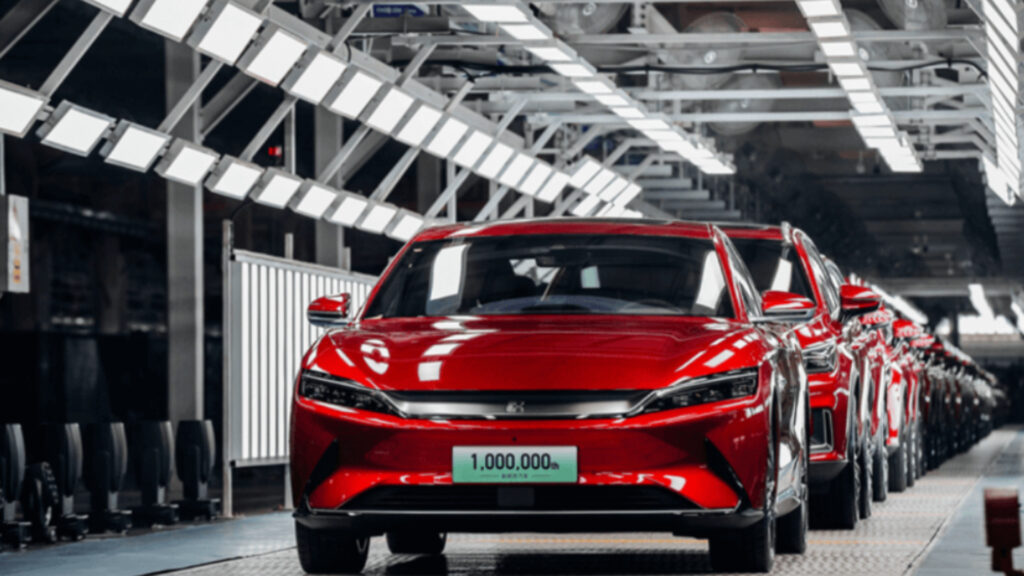For the moment, the American market is spared from the invasion of Chinese electric cars. However, the pressure is growing. The US government is looking for solutions to ensure they are kept out.
A market of around 15 million new vehicles, like the United States, must necessarily whet the appetite of Chinese brands. The biggest Chinese manufacturers know that it is through export that they will be able to survive and make their business prosper. However, many countries do not really welcome them with open arms. If Europe tries to find excuses without offending this crucial trading partner too much, the USA has never bothered with these considerations. Everything is done to block the arrival of Chinese manufacturers with double-edged protectionist measures.
Advertisement
Aware that simple high customs duties will no longer hold back Chinese manufacturers for very long, the Biden government wants to impose other restrictive rules than Bloomberg described in an article dated February 9, 2024.
Customs duties at 27.5% soon to be insufficient
If Chinese manufacturers want to sell their vehicles in the United States, they must pay customs duties of 27.5%. This taxation is inherited from a decision by Donald Trump during his mandate. The former president and candidate for re-election is now proposing to increase them to 60% if he is re-elected in 2024. Increasing customs fees is what Europe would like to succeed in imitating without creating conflict trade with China, which promises to be particularly difficult.
These customs fees must apply to both assembled cars and associated components (battery, technology, etc.). The goal is to block all technology from China. This will clearly pose a problem for the American giants who cannot partner with Chinese battery manufacturers such as CATL (or other technologies) to innovate.

Despite the cost of manufacturing electric vehicles being up to 50% lower than in the United States, Chinese manufacturers still lose their financial advantage when importing to American soil. Especially since American manufacturers can benefit from tax credits thanks to the local manufacturing of cars. The USA is therefore a market on hold for several Chinese brands.
Advertisement
However, there is a solution to get around this and some Chinese manufacturers are starting to seriously consider it. BYD is, for example, particularly tempted by the idea of building one of its factories on Mexican soil, as it is planned to do in Europe for quite similar reasons. BYD could thus avoid the murderous customs duties imposed by the American administration, while developing in Latin American markets. The Biden government is now trying to convince its Mexican neighbor not to let these Chinese manufacturers establish themselves on its territory.
A fear for the data generated by electric cars
Modern cars are now connected and they generate a significant volume of data that some manufacturers want to monetize in one way or another. As long as the data remains in the hands of a local manufacturer or a trusted country, this does not seem to pose a problem for the American government.
When it comes to a Chinese brand, the data generated and potentially sent to China suddenly becomes a major security risk. The American government is therefore working to strengthen control of this data. The idea is, again, to find an additional way to slow down the introduction of Chinese brands into the American market. We will avoid telling them that the Chinese group Geely is already well established thanks to Volvo and Polestar. Moreover, Polestar is currently building a factory in North Carolina, which could allow the models to obtain aid from the Inflation Reduction Act.
Should Europe take inspiration from American decisions?
Some accuse Europe of rolling out the red carpet for Chinese brands and only thinking about the consequences once they began to integrate into the automotive landscape. The reality is perhaps a little different from the disaster scenario envisaged by some.


Could new, higher customs duties change the situation? This is unlikely, since Chinese manufacturers have already taken the next step, that of setting up factories in Europe to circumvent these possible trade sanctions on imports. This could slow down certain new brands, less solid than players like Geely, SAIC (MG) or BYD, but they are clearly not the most threatening for the European automobile industry.
On the other hand, where Europe could be ahead of the Americans is in the regulation of data from this activity, since the subject is already studied in committee.
Above all, the American electric car market suffers from a significant obstacle to its adoption. Electric cars are particularly expensive there, with credit and financing offers not really helping to lower costs. Without this fierce competition from China, which has shaken things up in Europe, nothing is pulling prices down in the United States, with the exception of Tesla. Is this really an enviable situation?
